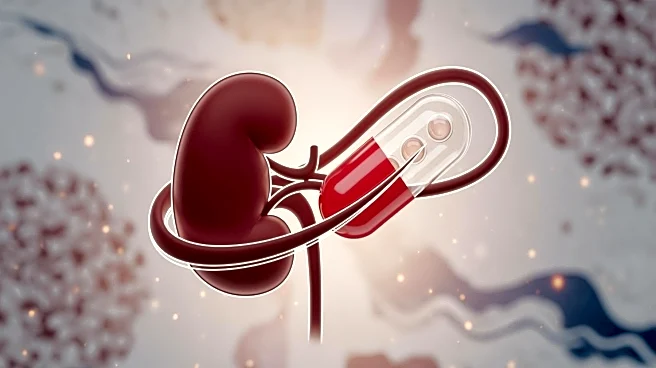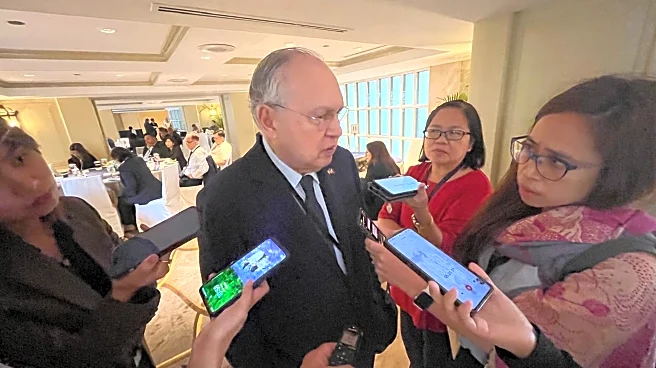What's Happening?
Chugai Pharma, a Japanese unit of Roche, has announced the acquisition of Renalys Pharma for $98 million upfront, with potential additional payments contingent on sales targets. Renalys, founded to address the delay in drug approvals in Asia, focuses
on kidney disease treatments. The acquisition includes sparsentan, a drug approved in the US and Europe for IgA nephropathy, a leading cause of kidney failure. Renalys aims to bring this drug to Japan, South Korea, and Taiwan, addressing the region's 'drug lag'. The company has already initiated studies for sparsentan's approval in Japan and plans further trials for other kidney conditions.
Why It's Important?
This acquisition is significant as it aims to tackle the 'drug lag' in Asia, where new therapies often face delays in approval compared to other regions. By accelerating the availability of sparsentan, Chugai and Renalys could improve treatment options for kidney diseases in Asia, potentially reducing the healthcare burden associated with chronic kidney disease and end-stage renal disease. The move also highlights the strategic importance of addressing regional disparities in drug access, which can impact patient outcomes and healthcare costs.
What's Next?
Chugai plans to continue the development and approval process for sparsentan in Japan and other Asian markets. The company will focus on meeting regulatory requirements and achieving sales targets to unlock additional payments. The success of this initiative could encourage other pharmaceutical companies to address similar drug approval delays in Asia, potentially leading to improved access to innovative treatments across the region.
Beyond the Headlines
The acquisition underscores the challenges faced by pharmaceutical companies in navigating different regulatory environments and pricing policies across regions. Addressing these issues is crucial for ensuring equitable access to life-saving medications globally. The focus on kidney disease treatments also highlights the growing need for effective therapies in aging populations, where chronic conditions are increasingly prevalent.
















